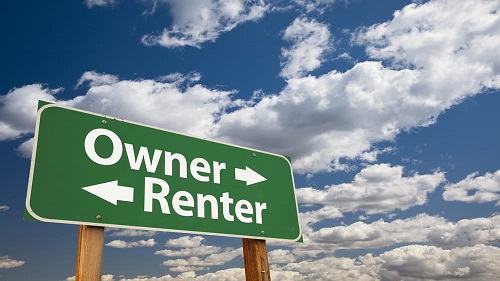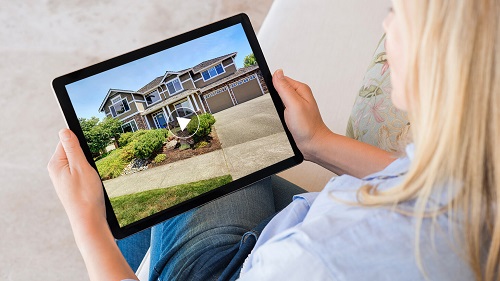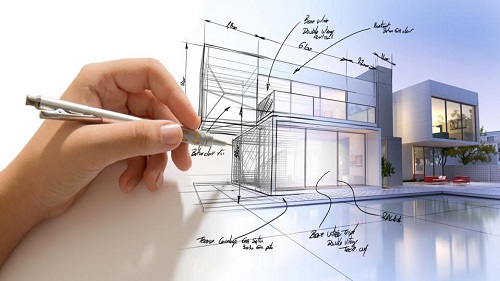
Mortgage Dove
Rent-to-Own Homes in 2022: Your Ultimate Guide
If you're like many home buyers, a mortgage is needed to finance your purchase of a new home. To qualify, you need to have a high credit score and cash to make a down payment. If you don't have these, the standard path to homeownership might not be possible.
There's a different option, however: a rent-to-own agreement lets you rent the property for a specified amount of time with the choice of buying it when the lease expires. Rent-to-own agreements are composed of two parts: a standard lease agreement and an option to buy.
This article will outline the things to look out for and how the rent-to-own process is carried out. It's more complex than renting, and you'll have to take extra measures to protect your interests. Doing so will help you determine whether the deal is a suitable option if you're planning to purchase a house.
What Is Rent-To-Own Homes?
Rent-to-own homes are special agreements that permit you to purchase the home you want after a couple of years of renting. In a rent-to-own contract, you pay more than the fair market value. The additional money is the down payment at the end of the lease. You may or may not be required to pay the "option fee" of 2%-7% of the property's value to keep the option of purchasing the home. If you fail to purchase the property before the end of the lease, you lose your extra payments.
What is Rent-to-own Agreement?
The idea for this agreement is that most people want more than just access; instead of only having temporary access rights, consumers could also have long-term commitments in these arrangements, so there is less risk when making significant investments before becoming homeowners.
How Does Rent-To-Own Work?
Renting-to-own refers to renting the property and making progress towards eventually owning it, should you decide to purchase the property when your lease ends. Each month, a part of the rental goes to the down payment on the property. You can choose to make use of the cash that’s accrued to buy the house at the end of your lease.
The Pros Of Rent-To-Own Homes
Let's look at the advantages of rent-to-own homes:
- It lets you save for the down payment. Rent-to-own is a great method to save money for a down payment. It also allows you to explore the house to ensure that you are satisfied with it. A portion of the rent used to pay for the down payment depends upon the details laid out in the contract. However, the monthly lease you pay is greater than the fair market value since the extra cash goes towards your down payment.
- You will save on repair costs. Most of the time, rent-to-own agreements typically split repair responsibility between the tenant and the landlord. You can agree to cover the cost of minor repairs while your landlord agrees to pay for the major repairs. That is a good option when you're looking to purchase an investment property but do not have enough cash to pay for the major repairs.
- It gives you the option to purchase or to move. After the expiration of the lease, there are two options: to purchase the house or to relocate to another one. If you decide to buy the property, then you'll be able to get the home loan from a qualified mortgage lender and proceed with the typical home-buying procedure. Any funds you'd accumulated through down payments will go to the lender.
The Cons Of Rent-To-Own Homes
After looking at the pros of renting-to-own, let's talk about some of the disadvantages of rent-to-own houses:
- There is a chance that you will lose the money you've spent if you choose not to buy the house. The main drawback of renting-to-own homes is if you do not purchase the house in the end, you lose any cash you have made in rent to the homeowner, plus an option fee if your agreement requires it.
- There's a possibility that you won't be able to purchase the house if you're not qualified for a home loan. You also give up your right to the property when you want to buy the property but aren't able to get a loan. The homeowner can later put the house on the market again for rental or sell it. These are the reasons why it's crucial to ensure that you'll be able to purchase the property at the expiration of your lease and that you're eligible for a home loan.
How Do You Find A Rent-To-Own House?
You can search for a rent-to-own home by finding homes that are up for sale but aren't yet fully occupied. The homes you find will have the offer to rent it or make overpayments on your behalf if you're looking to buy the property, which is an excellent choice as they typically offer lower rates.
The first step in finding a rent-to-own house is knowing what your ideal situation is. Flexibility and affordability are two key elements to consider when making this kind of deal, and also the location of the property. It's not just about the point of how much cash you have at your disposal, but also from where it's coming from, whether it's cash or credit which could be used to pay for some of the initial costs.
Questions To Ask Prior To Signing A Lease-Purchase Agreement
The following questions must be addressed before signing a lease agreement for rent-to-own homes:
Ask the dealer if there are any hidden charges or fees in advance, and what type of credit check they do for prospective tenants, and if those with poor or no credit history can still be eligible as well as how much of the money could go towards the payment of your purchase after your monthly payments are paid in the course of time, using the interest rates that banks set today?
Ensure that it sounds reasonable in the context of all aspects, including but not limited to bank financing options that are available today which could be subject to change based on economic conditions beyond our control. It is also possible to inquire:
- What is the term of length?
- How much should I budget each month to cover closing costs, rent, and any other costs?
- Is there ever an opportunity when my debt matures without me having paid off all my debts first?
Discussion with your prospective landlord will allow you to save money on what they're asking for. However, it's not all about getting them below where they had originally thought of in the beginning. You must ensure that every aspect of living here will work most financially, so that you don't have many regrets in the future.
Tips For Negotiating Rent-To-Own Agreements Successfully
Discussion with your prospective landlord will allow you to save money on what they're asking for. However, it's not all about getting them below where they had originally thought of beginning! You must ensure that every aspect of living here will work most financially, so that you don't have many regrets in the future.
- Make plans and do your research.
- Be aware of what you can afford.
- Set realistic expectations.
- Be organized and keep on top of all communication with the seller.
- Don't be shy about seeking advice from a real estate agent or a lawyer.
- Consider what repairs or upgrades are required on the property you're considering buying.
- Find a fair price to negotiate with the seller, and then agree on a deal that benefits both parties.
Rent-to-own houses can be ideal for those looking to purchase a home but aren't able to purchase it upfront. There are a few important things to consider prior to signing up, but it's essential to research the subject first. We've provided the essential information you should learn in this article and recommend that you go through it before making any decision.
Types of Rent-To-Own Contracts
There are two main kinds of rent-to-own agreements, such as lease-option and lease-purchase .
Lease-Option Agreement
Lease-option agreements stipulate that you give the owner an option fee at the time you sign the agreement, which could usually be as low as 2%–7% of the total purchase price.
The rent money (or rent credits) you save throughout the duration of your lease is used to pay the downpayment if you purchase the property. You are able to collaborate with the seller in order to negotiate an acceptable purchase price once your lease is up. The process typically involves an appraisal of the property to determine how much the house is worth. Most of the time, your option fee will reduce the price you pay for the property.
You can ignore that option and let it expire if you decide not to purchase the property. However, doing this will result in the loss of both the option fee and the rent credits.
Lease-Purchase Agreement
A lease-purchase agreement works essentially the same as a lease-option agreement. The home is still leased for a couple of years, and then you put a portion of your rent towards the down payment of the house. If you sign the lease-purchase agreement, there is a requirement to purchase the property at the end of the term.
You and the seller will agree to a purchase price once you sign the lease. You and the homeowner may decide to agree to a price before you sign the contract, or you could choose a time for an appraisal and decide on a price later. After both you and the owner have come to an agreement, you can begin your lease.
Setting the price prior to the time of purchase will give you a better estimate of how much you'll need in a loan. If you choose to sign a lease-purchase contract, you need to begin looking for a loan when you're living at the house or as soon as you've agreed on a price.
You'll forfeit your right to the property and the rent credits you've earned if you're unable to secure financing for your home before your lease expires. The homeowner could also claim damages for breach of contract if you do not purchase the property.
When Should I Choose Lease-Option vs Lease-Purchase?
What is the best option for you to choose between either a lease-option agreement or a lease-purchase agreement? The answer relies on the real estate market.
In a situation where house prices are increasing, the option of locking in a cost for your home can allow you to build more value on your property over the duration of the lease. If the price of your home is stagnant or decreasing, you may prefer to take out the option of having an appraisal done at the end of the lease. Speak to a real estate agent in your area before you make your decision.
When Rent-to-Own Works
Are you contemplating the rent-to-own option? Here are some instances that could prove advantageous:
- It’s quite a good idea to work on your credit score since it affects the difficulty of obtaining a mortgage. A higher credit score allows you to access different loan products as well as lower rates of interest. Do you require more time to build your credit score? Rent-to-own houses can provide you with that.
- It's convenient to have more time to save up for the down payment. A rent-to-own plan provides you with enough time to save money for a down payment. If you save money on top of the rent credit, it is possible to make thousands of savings in the long run by avoiding private mortgage insurance.
- It's unlikely that you'll save your money on your own. Do you usually spend all your money immediately after you receive it? Making your monthly rent payments towards a down payment could help you save money and take the first steps toward homeownership.
- You've decided where you want to reside. Rent-to-own leases will work best if you are certain of the area you'd like to be in. If your house is located somewhere with an excellent school district or the neighborhood you live in has easy accessibility to public transport, it is important to be certain that you'd like to live in the specific location when you sign a rent-to-own lease.
When Rent-To-Own Doesn't Work
Rent-to-own leases may not be suitable for every individual and for every situation. Here are a few scenarios in which you may not want to go with a rent-to-own lease:
- You're not sure if you can obtain a loan. It's possible to keep renting if you're not sure you'll qualify for a loan at the end of the lease. Foreclosures, bankruptcies, and repossessions on your credit report could stop you from being eligible for a loan.
- You don't plan on improving your credit score. Do you have a low credit score hindering you from being able to get a mortgage? Do you think a rent-to-own lease could give you more time to build your credit? You should plan ahead to improve your score and put it into action prior to signing your lease.
- It's common for you to be late with rent. Many rent-to-own leases stipulate that you'll lose the monthly rent credit if you are late in payment, even by a couple of days. If you're someone who's always late in paying, it's a good idea to pay some months of rent before you sign up for a rent-to-own property.
- You're not sure which area you'd like to reside in. It's recommended to think that signing a lease for rent is similar to when you purchase a house. You must be sure that you'd like to live in that home.
"Mortgage Dove makes home financing convenient for every American. You can count on us to provide a home buying experience tailored to your personal needs and financial situation. We strive to give you the peace of mind that your home financing goals can be achieved.”

Mortgage®
www.mortgagedove.com



